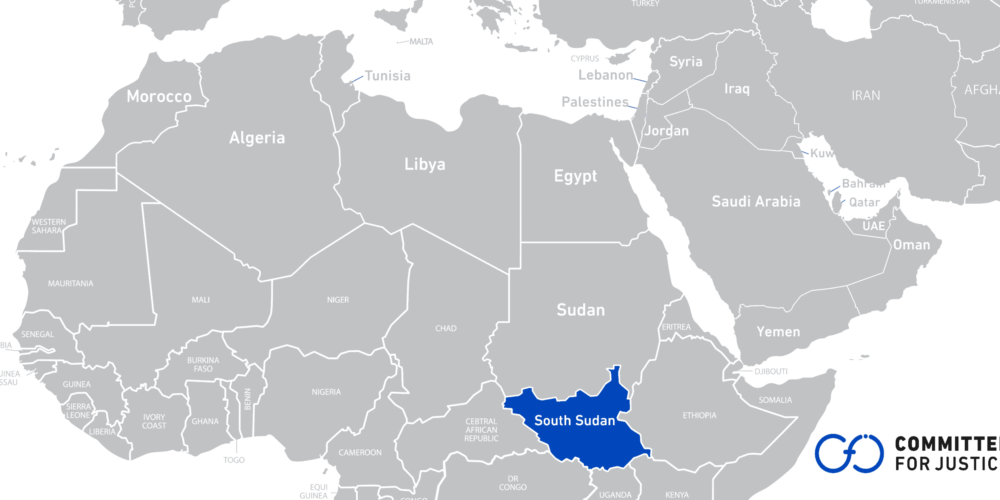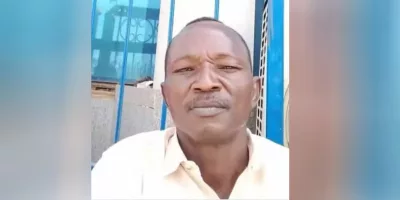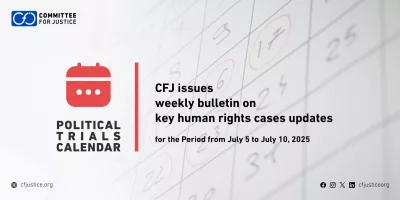News briefing
Translated and Edited by: Committee for Justice
Geneva: December 16, 2021
Participants at the transitional justice processes in South Sudan announced their adoption of a joint strategy and action plan to accelerate implementation of existing commitments under the Revitalized Peace Agreement of 2018.
This came during the closing ceremony of the “Conference on sustaining momentum for transitional justice in South Sudan”, which was held in Nairobi from December 13 to 15, at the initiative of the United Nations Commission on Human Rights in South Sudan, and included representatives of the (Revitalized Transitional Government of National Unity of the Republic of South Sudan; the Transitional Justice Working Group representing civil society and victims’ groups; the Reconstituted Joint Monitoring and Evaluation Commission for the 2018 Revitalized Agreement; and delegates of the African Union and the UN system).
The goal is to restore the confidence of the people of South Sudan in the state:
The Chairperson of the Commission, Yasmin Sooka, opened the conference with a speech in which she outlined the centrality of transitional justice processes for peace and state-building, saying: “Transitional justice is about truth recovery, accountability, reparations for survivors, and institutional reform. If done well, this has the potential to restore the trust of South Sudanese people in the State, and to signal the government’s commitment to work for all its people, irrespective of ethnic identity.”
The South Sudan Minister of Justice and Constitutional Affairs, Ruben Madol Arol Kachuo, said: “I want to say there is political will on the side of the Government of South Sudan.”
We need to have benchmarks that we can agree and meet with regard to implementation of the agreement,” Kachuo added.
The Minister of Defense and War Veterans said in his address to the conference: “The Commission on Human Rights in South Sudan should support us and all our partners to ensure we are at a better stage on these processes.”
Transitional justice is necessary to ensure accountability:
“Transitional justice is critical for the people of South Sudan who desire accountability,” said Ambassador Bankole Adeoye of the African Union Commission. “It is for this reason that the AUC fully supports this conference… for building peace in South Sudan,” he added.
“local ownership of transitional processes will be crucial to ensure their success,” said Guang Cong, Deputy Head of the United Nations Mission in South Sudan.
The effect of prolonged delays on delayed justice:
In the same context, Gordon Lam, a member of the Transitional Justice Working Group in South Sudan, highlighted the effects of prolonged delays in implementing existing agreements, stressing that victims who have been displaced and suffered sexual violence demand justice.
Because of delays in the transitional justice processes, emotions are transferred to the children,” Lam said, noting that the shrinking space for civil society actors in South Sudan restricts them from participating in these processes, and decisively limits the voices of victims and their inclusion.
An international welcome and a desire to speed up the consultations:
The Deputy High Commissioner for Human Rights at the United Nations, Nada Al-Nashif, welcomed the recent developments, such as the government’s steps towards the formation of the Truth and Reconciliation Commission, noting the delay and lack of progress in this area and others.
Al-Nashef also noted the importance of the government “to fast-track broad-based public consultations on the establishment of the Commission for Truth, Reconciliation, and Healing, and to further liaise with the African Union Commission regarding the establishment of the Hybrid Court.”
Chapter V of the 2018 Revitalized Agreement provides for a comprehensive program of transitional justice to address human rights abuses on a large scale, including through the establishment of a Truth, Reconciliation and Healing Commission, a hybrid court, and a reparations commission.
Following prolonged delays, in January 2021, the revitalized transitional government of national unity tasked the Ministry of Justice and Constitutional Affairs with beginning the implementation of transitional justice mechanisms along with other constitutional and judicial reforms. To maintain this momentum, the Ministry of Justice committed this week to inviting partners within 6 months to assess progress in implementing transitional justice processes.






